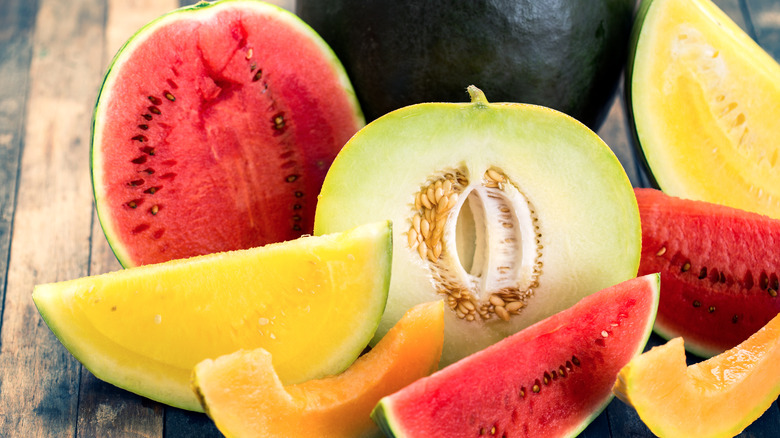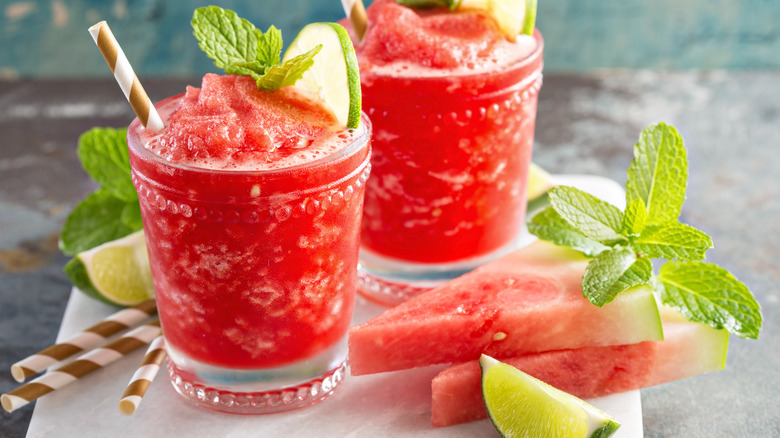Why You May Want To Think Twice Before Freezing Melon
If you have a home garden or fruit trees, preserving some of your harvest seems like a good idea. Having fruit on hand during those long winter months can come in handy when you're craving the flavors of summer. Thankfully, there are a number of preserving methods and fruits that keep well. One of the easiest ways to preserve your harvest is by freezing fruit. All you need is freezer space and a container to keep it in.
One thing to remember is that freezing can change the consistency of some fruits once they're thawed. A group of fruits that fall into this category are melons, which are some of summer's most flavorful fruits, which include cantaloupe, honeydew and watermelon. If you freeze and defrost melons, they actually end up losing most of their juice, as noted by Self. The juiciness of a ripe melon is one of its biggest selling points, so doing anything to jeopardize this feature seems like something to think twice about.
What you can make with frozen melons
But what should you do if you have a surplus of melons and ample freezer space? If you're faced with the choice of either freezing melon or tossing it into the trash, by all means freeze it. According to the National Center for Home Food Preservation, you can remove the seeds and rind and pack it in containers, as long as you allow enough room for the fruit to expand once its frozen.
Although the consistency of frozen melons changes if you're planning to eat it as you would fresh, the good news is that you can use frozen melons in a variety of recipes. One great use is tossing it into your favorite smoothie. Another use for frozen watermelon is adding rum and transforming it into a slushy cocktail, as Eating Well explains. Or make frozen watermelon into sorbet, with only two ingredients as noted by The Things We Make Well. Whichever recipe you decide on, you really can't go wrong.

